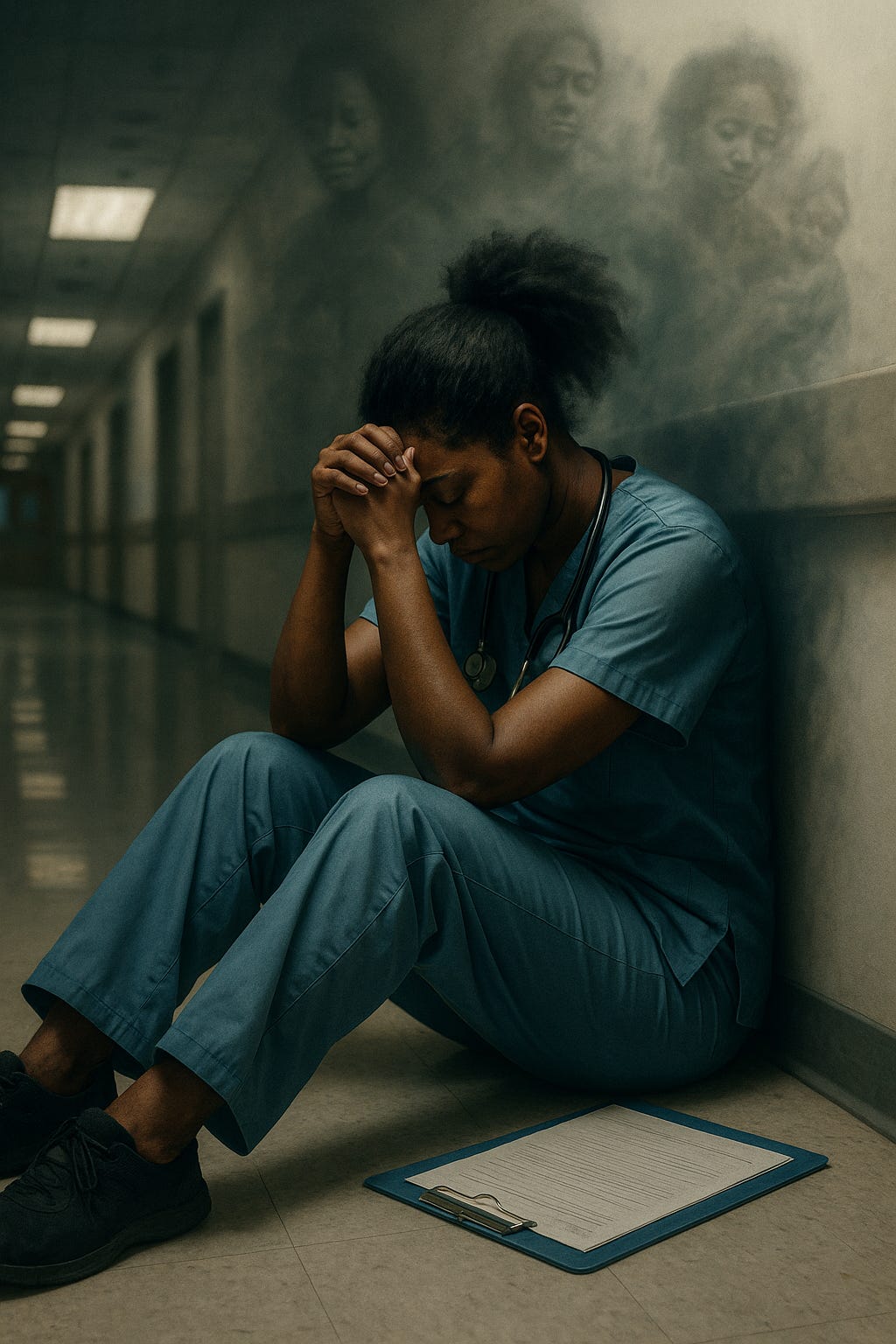Proof Of Life
What Survives After the Fire
When I was seventeen years old, I had a secret growing inside me, and it wasn’t just the baby I was carrying.
It was fear. Shame. And a knowing.
The knowing that my life, my carefully laid plans, my full scholarship to college, my daydreams of what could be had already been reshaped by forces I could barely comprehend.
I became a mother before I was old enough to vote.
I remember the way people looked at me. Some with pity, others with disgust, a few with that patronizing smile that says, “You’ve ruined your life.”
But here’s the thing.
You don’t ruin your life by loving someone. Even if they show up weighing 6 pounds, 13 ounces and turn your world upside down. You don’t ruin your life by becoming a mother. You reveal it. You start peeling back the layers of who you thought you were to get to what’s actually there.
But that doesn’t mean it’s easy. It ain’t always quick, either. It’s raw. Not pretty. Carnage never is. There will be blood.
Yes, I know I sound dramatic. Such is life though, right?
I fought my way through young motherhood. I became a nurse. I did what society tells you to do when you’ve made a mistake: I “fixed” it. I got a degree. Actually, a couple of them and almost a third. I worked hard. I over compensated when it wasn’t needed. I had to be the best. I was the best. I wore the scrubs. I held hands at deathbeds. I advocated for patients who didn’t have a voice.
But even as I was saving lives, mine was quietly unraveling.
You see, when you’re a young mother, a woman of color, a nurse, a caretaker, nobody asks how you’re doing. You can’t break generational curses without addressing generational trauma. It’s too heavy a burden to carry. They assume you’re strong, but something will have to give. They assume you’re thriving. In my case, they assumed wrong. Very wrong.
Looking back, I realize my body had been whispering for years.
Through migraines.
Through chronic fatigue.
Through hair loss and swollen lymph nodes. Through skin rashes that appear and disappear at will.
Through that pain in my chest that wasn’t a heart attack, but still made me scared I was dying.
After numerous doctor visits with few answers and even fewer magic potions, I stopped going. Besides, thugging it out doesn’t cost as much money.
Depression doesn’t always look like tears.
Sometimes it appears to be hyper-functioning, like working eleven 12-hour shifts in a row due to staff shortages. Because, of course, it was my responsibility to improve nurse/patient ratios.
It looks like excellence.
Like answering every email, making every appointment, holding every damn thing together, and going above and beyond.
Sometimes it looks like you’re fine.
Until you’re not.
In our community, depression isn’t real until you stop moving. Until you’re hospitalized. Until someone else notices. And even then, we call it everything but what it is.
GIRL…you’re tired.
You’re dramatic.
You’re ungrateful.
You need to pray.
You need to stop letting everything get to you.
Whatchu got goin’ on that’s making you “depressed”?
There wasn’t anything I could definitively blame my sadness on. That muthafucka just showed up and wouldn’t leave. It wasn’t loud, but it was thick and heavy. Like the unmistakable stench of decomposing flesh. Like trying to move through water with arms made of lead and legs composed of concrete. My thoughts scrambled. I couldn’t concentrate. I couldn’t rest. I couldn’t feel anything but the pressure to keep going.
And still, I showed up to work.
Because I was the strong one.
Because I was the nurse.
Because I was the Black woman in the room, and I knew what would happen if I cracked. I can’t prove those stereotypes right, now, can I?
I exist in a system that doesn’t allow Black women to be anything less than superhuman. And if you dare ascend to superhuman status, of course, it’s because of DEI initiatives. Meritocracy, where?
I hail from the South, where confederate flags and stately antebellum homes with large vertical columns on wrap-around porches dominate the landscape. Large estates have names with the word plantation in them, and well-manicured yards with dogwood and giant magnolia trees in full blossom proudly exerting their beautiful dominance. I can’t adequately describe how beautiful it is to behold with words only. You just have to see it. Smell it.
But if those porch columns could talk, they’d tell me that those beautiful blooming trees I admire so much have their roots in soil soaked with my ancestors’ blood.
I’m a descendant of a people who had to hide their wounds, especially the invisible ones. To emote was a luxury they couldn’t afford. Anything other than compliance meant weakness, and weakness meant punishment and death. Keeping those wounds hidden until they became fatal was a badge of honor. It made you a survivor of the unsurvivable. Those were the lessons I was taught, just as they were taught to my mother, and her mother before her. Those lessons are still embedded within the Black community, well beyond Jim Crow and slavery, especially in the South. Ancestral indoctrination lives. Both good and bad. I am the dream of my ancestors and I can’t fuck this up.
When you spend your life trying to keep everyone else breathing, sometimes you forget you’re supposed to breathe too. No one taught me that.
Keep reading with a 7-day free trial
Subscribe to Ricominciare to keep reading this post and get 7 days of free access to the full post archives.




